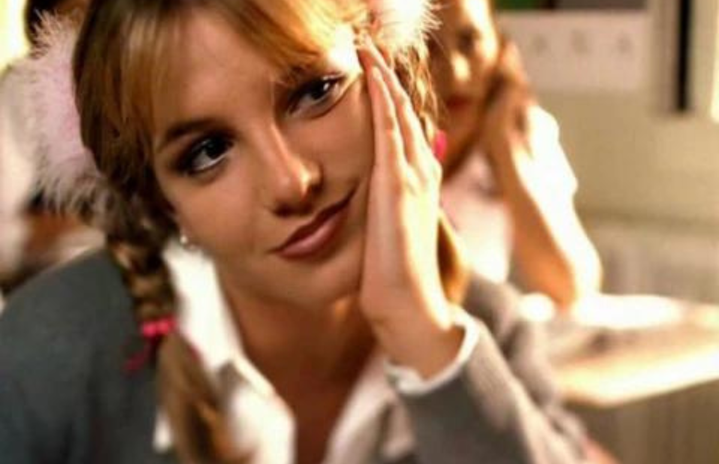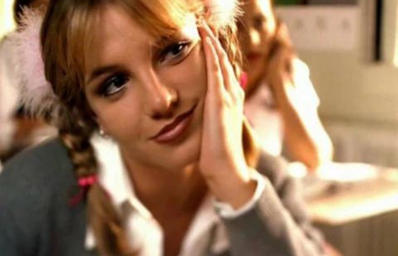Every once in a while, we see the “rebirth” of past decades through fashion, pop culture, and trends that suddenly make a comeback — and it’s safe to say Gen Z and nostalgia go hand in hand. Take the Y2K aesthetic, for instance, that has returned in full force — from low-rise jeans to beaded jewelry, neon colors, and even the use of (gasp!) wired headphones. Nowadays, there seems to be an ongoing search for opportunities to connect with moments from the past. While fashion trends come and go and tend to be cyclical in nature, a new study says that Gen Z’s obsession with nostalgia might run deeper than you think.
Is the overall fascination with nostalgia a sign that Gen Z seeks comfort in more ways than one? According to a 2022 study published in the Journal of Neuroscience, the sentiment of longing and nostalgia is scientifically shown to reduce our perception of pain. In the study, researchers showed participants pictures that triggered childhood memories, as well as music, movies, and foods from that time, and found that it led to weaker perceptions of pain and discomfort overall.
Sometimes, nostalgia serves as a form of self-care.
According to mental health counselor and author Dr. Joanne Frederick, when you engage in a pleasing, nostalgic activity, the reward centers of the brain are activated. “Although most people don’t think of it as such, nostalgia can function as a form of self-care,” she tells Her Campus. “Familiarity is comforting.”
Additionally, Dr. Frederick says that familiar thoughts, emotions, and items can lead us to feel safe. “How often have we clung to a pair of shoes that are on their last leg because they fit like a glove, and we don’t know if a new and shinier pair is going to fit as well?” she says. “What is familiar often makes us think of things…that don’t seem new or threatening to us.” After all, change is scary! Almost everyone has that one pair of ancient sneakers or shoes they cling to in face of unfamiliar grounds. But the feeling of nostalgia, in itself, goes way beyond a general fear of the unknown — and Gen Z appears to resonate closely with it.
Nostalgia causes us to look back on old memories.
To put it simply, nostalgia is a longing desire to return to times in our lives that we recall as being happy or positive. Any kind of reminder of the past — whether that be a person, a song, smells, or clothes — can trigger a sentimental-driven response. “As people get older and are faced with increased responsibility, possible loss of a family member, and rejection, they tend to look back at times or people they might have taken for granted,” Dr. Frederick tells Her Campus.
According to Business Insider, Gen Z’s obsession with nostalgia may be an indication that members are seeking comfort and connection — especially given the difficult circumstances many of them have faced over the past few years. But reflecting on the past and wishing we could return to more nostalgic times isn’t necessarily restricted to age.
For some, nostalgia is a way of seeking comfort and connection.
“Even though this generation is so young, they do become nostalgic and seek connections and comfort when a world presents uncertainty,” Dr. Frederick says. But Gen Z’s nostalgia seems more intense and deep when compared to other generations. Why is that the case? Dr. Frederick says it may be that the digital age we are living in that contributes to a sense of separation and isolation from others.
“Because there is so much information Gen Z can choose to consume, they lack the shared experiences previous generations had when everyone saw the same commercials, watched the same TV shows, or listened to the same music,” Dr. Frederick says. “Therefore, Gen Zers turn to early 00s shows, like Friends, Sex and the City, and That 70s Show, to “experience life in a way that they never have, before ubiquitous social media and texting.”
It appears that Gen Z is continuously aspiring toward simpler, pre-social media times. The re-emergence of past trends in today’s pop and fashion culture — notably from the 70s through to the early 2000s — can be seen as an effort directly linked to Gen Z’s longing. After all, how many times have we seen Gen Zers say they were “born in the ‘wrong’ generation” or think that the past was “a better time,” even though they never actually experienced it themselves?
For Gen Z, nostalgic vibes are here to stay.
Pre-digital elements like film cameras, mp3s, vinyl, and wired headphones — almost as popular now as they were then — can look good when they’re part of TikTok trends and fun fashion aesthetics. For example, 90s sitcoms are still funny today and colorful, funky, 80s-inspired eyeshadow can make your eyes pop just like they did back then. But usually, a specific significant event triggers someone to feel a pull toward nostalgia, and people tend to feel nostalgia to its greatest degree when things are not going as well in the present.
Sound familiar? Considering how 58% of Gen Zers report burnout, 49% say that the pandemic makes planning for their future feel impossible, and the notable loneliness epidemic on the rise, maybe it only makes sense to let our jeans hang a little lower.


